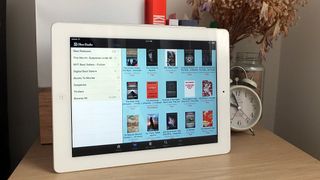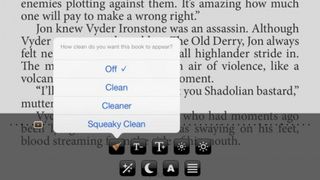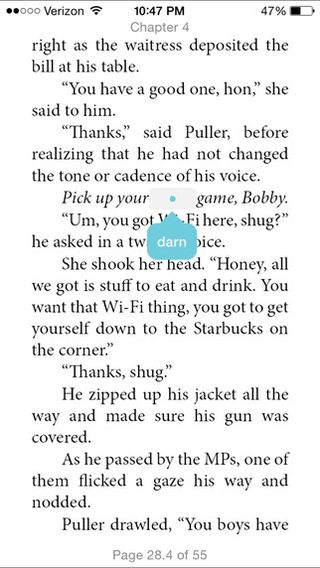Content in moderation: is digital censorship messing with the arts?
Algorithms cannot do the work of the morally outraged

For anyone who spent their youth staring wistfully through the windows of record shops, longing for Saturday's trip to the library or taping films from the TV, the smorgasbord of culture available at our fingertips is literally a dream come true. But for some, it causes the internet's biggest problem. If lack of funds isn't a problem and there's no human gatekeeper to ID or refuse service, how can parents be sure their children aren't watching, reading or listening to explicit films, music and books?
It's a question that is being answered in various ways, all of which come with their own set of problems. In the UK, ISP-level website blockers are now in place to stop children stumbling across adult sites - you can turn them off but you'll have to ask. Netflix has a gated "just kids" section featuring only child-friendly films and TV shows. Most TV services come with a PIN number system to stop curious young minds from accessing potentially disturbing shows on demand. Social networks rely on a combination of automated processes, human moderation and users flagging up inappropriate content.
Last week, a new ebook store caused a stir by taking a different approach, specifically to profanity. Clean Reader raised the heckles of authors and readers by giving its users the option to "clean" any book bought through the app.
Devised by Jared and Kirsten Maughan after their daughter was upset by the swearing in a library book she was reading, the couple worked with app developers The Page Foundry to offer an app with various levels of "cleanliness" - clean, cleaner and squeaky clean - that blank out progressively less offensive terms as they go.

To "clean" a book obscures fucks and cunts, "cleaner" sees off shits and bastards while "squeaky clean" bans anything that could be thought of as profanity. The app also obscured some anatomical terms including breast, vagina and penis. When asked how they came up with the words to remove, Jared Maughan told us, "We referenced several websites that list profane words. They may not like being mentioned in your article but there's several of them. They even offer less offensive alternative words/phrases which we used in our database."
Since it rose to public attention earlier this month, plenty of famously profane books have been put through the filter - including American Psycho and some erotic literature - and, as expected, they come out sounding like something from a sitcom set in Pleasantville in 1952.
Many authors were not happy that their books were available in the million-strong library. Joanne Harris, author of Chocolat, led the charge, telling us that she objected to the app changing what she had written and engaging the app makers in a series of emails. After a week of clashes with authors, Clean Reader stopped selling ebooks on Thursday night.
Get daily insight, inspiration and deals in your inbox
Get the hottest deals available in your inbox plus news, reviews, opinion, analysis and more from the TechRadar team.
In a statement on Facebook, it said, "Over the last several days we have been asking for and receiving significant feedback from authors. A common theme in all of it is that many authors do not want their books being sold in connection with Clean Reader." The app is still available, however, and the team behind it are working on "the next release" which will be made "in response to the feedback we have received from many authors and users".
Before the U-turn, the makers of the app were quick (and increasingly desperate) to point out that Clean Reader does not actually physically change the text of the book, which would put them on shaky ground both ethically and legally. It's not censorship or copyright infringement, they insisted.

Instead, the offending word is blanked out and the reader can tap it to see a replacement word (darn, bother, bottom etc) if they want to. The reader is free to turn the filter off any time they like. That, according to the app makers, is what makes it OK. A similar service for film, named Clean Films, was shut down by a court ruling in 2006.
Maughan told us, "WE DO NOT SELL EDITED COPIES OF BOOKS! Please make this very clear in your article." He went on to ask us to be explicit about the fact that people can turn the Clean Reader feature off and read the book as it was written - thus placating authors (he thought) but also negating the whole point of the app. "It's really no different than if someone decided to take a Sharpie to their book and cover up all the swear words," he insisted. "Believe it or not this is happening."
The complaints levelled at Clean Reader fall into three categories: the first is a broad lack of understanding of literature and why authors might be upset about the app. Second, because books in the store are bought in by broad-stroke publishing house deals, authors haven't given their permission for the app to tamper, temporarily or otherwise, with their work. And third, because "cleaning" books is an automated process, no care is taken in making sure the suggested replacements even make sense. The app makers haven't even given thought to the replacement words, having taken them wholesale from existing lists.
Current page: Is automated moderation messing with art?
Next Page The art of careful moderatingFormer UK News Editor for TechRadar, it was a perpetual challenge among the TechRadar staff to send Kate (Twitter, Google+) a link to something interesting on the internet that she hasn't already seen. As TechRadar's News Editor (UK), she was constantly on the hunt for top news and intriguing stories to feed your gadget lust. Kate now enjoys life as a renowned music critic – her words can be found in the i Paper, Guardian, GQ, Metro, Evening Standard and Time Out, and she's also the author of 'Amy Winehouse', a biography of the soul star.
